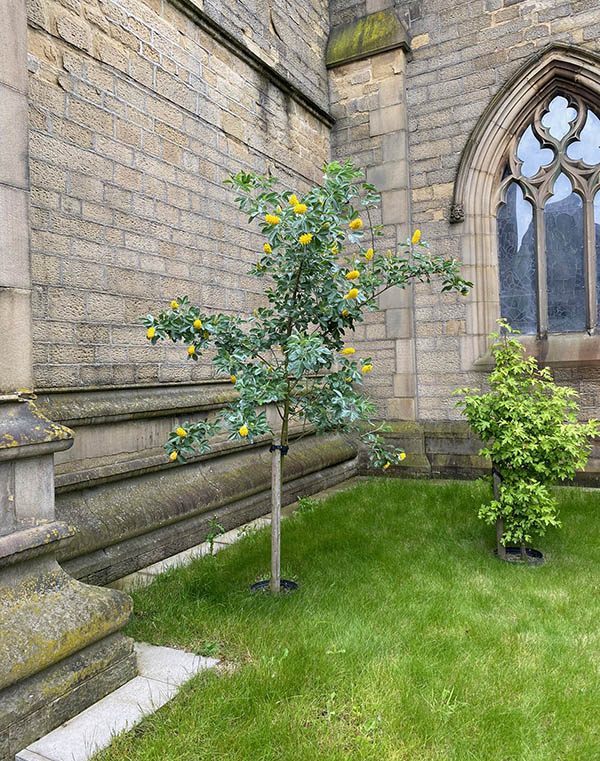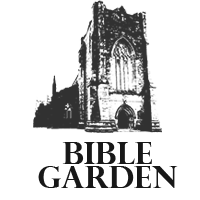Broom (Genista plantagenista)
Map Position: 24The broom that can be found in the Holy Land is biologically Retama raetam or “White Broom”. It grows into a small tree of a few meters height. This species would struggle to thrive in our climate, and we could not get hold of this plant either from a UK or a European nursery. The broom that is found in Britain, mainly along coastlines and motorways, with yellow flowers in spring and autumn is only a low-growing shrub and it is hard to imagine the prophet Elijah sitting under it.
We have therefore chosen a Moroccan Broom (Cytisus battandieri) which belongs to the same family (Genista). It grows to a similar shape and height, and you can sit under it and ponder when you are in a low mood; an angel will come probably and cheer you up.
Brooms are often used to make cleaning equipment: “brooms”.
The wood is used for firewood and charcoal.
In mythology, brooms are often used as means of transport, for example by witches and, more recently, in the Harry Potter books. In some cultures, newly married couples jump over a broom stick for good luck, a custom that predates Christianity in Britain. An ancestor of the Royal Plantagenet Dynasty is said to have worn a broom flower in his hat – planta genista – which gave him his name.

Biblical
In the Old Testament places are often described by the plants especially the trees that grow there. When Moses led the Jews through the Sinai desert, they “encamped at Rithmah. And they set out from Rithmah” (Numbers 33.18 & 19). Some
scholars believe that “Rithmah” is used to describe the place where Retama, i.e. broom, grows.
When Elijah was persecuted by Queen Jezebel and had to flee to save his life, he sat down exhausted under a broom tree and wanted to die; but an angel came and rescued him and lifted his spirits (1. Kings 19.4 & 5).
When Job was ridiculed by his enemies, he cursed them, telling them to “pick saltwort and the leaves of the bushes, and the roots of the broom tree for their food” (Job 30.4). It should be noted here that the roots of the white broom are extremely nauseating and even poisonous.
We pray that the Lord will protect us from the fiery arrows of the enemy; “the warrior’s sharp arrows, with glowing coals of the broom tree” (Psalm 120.4).
The Lord will cleanse sinful Babylon, he “will sweep it with the broom of destruction” (Isaiah 14.23).
